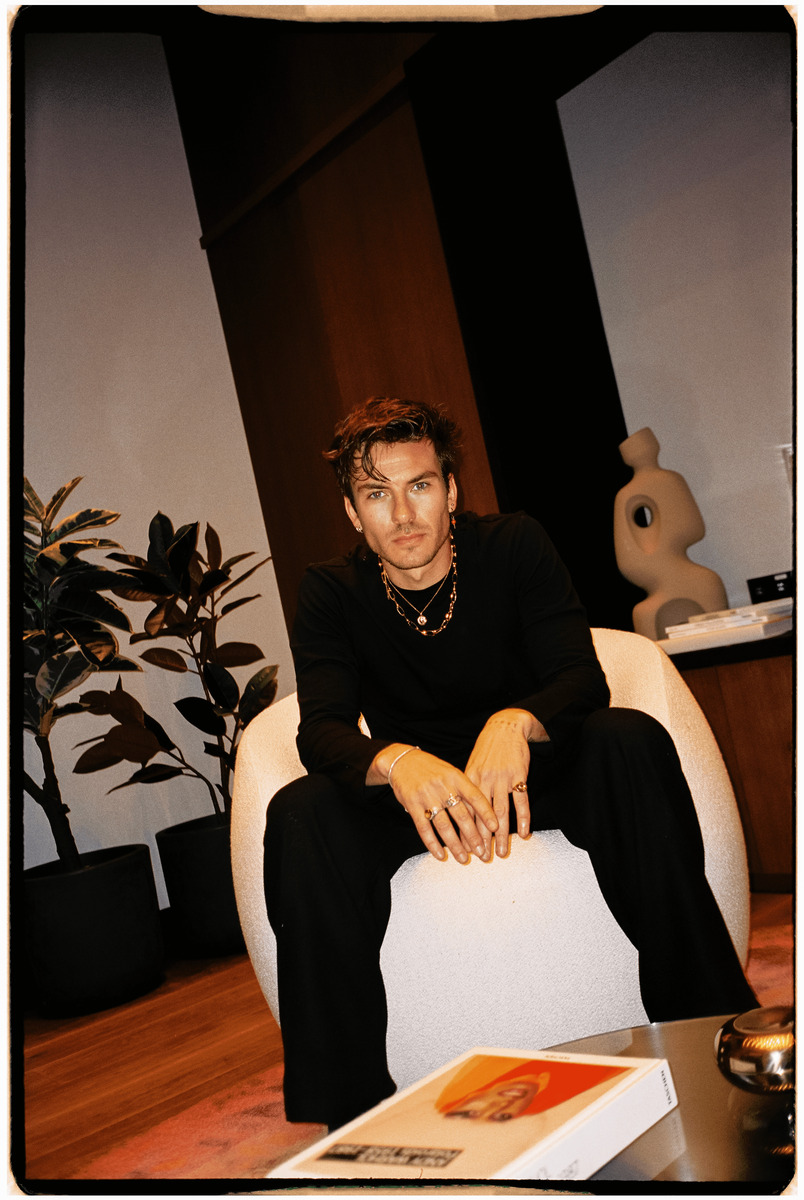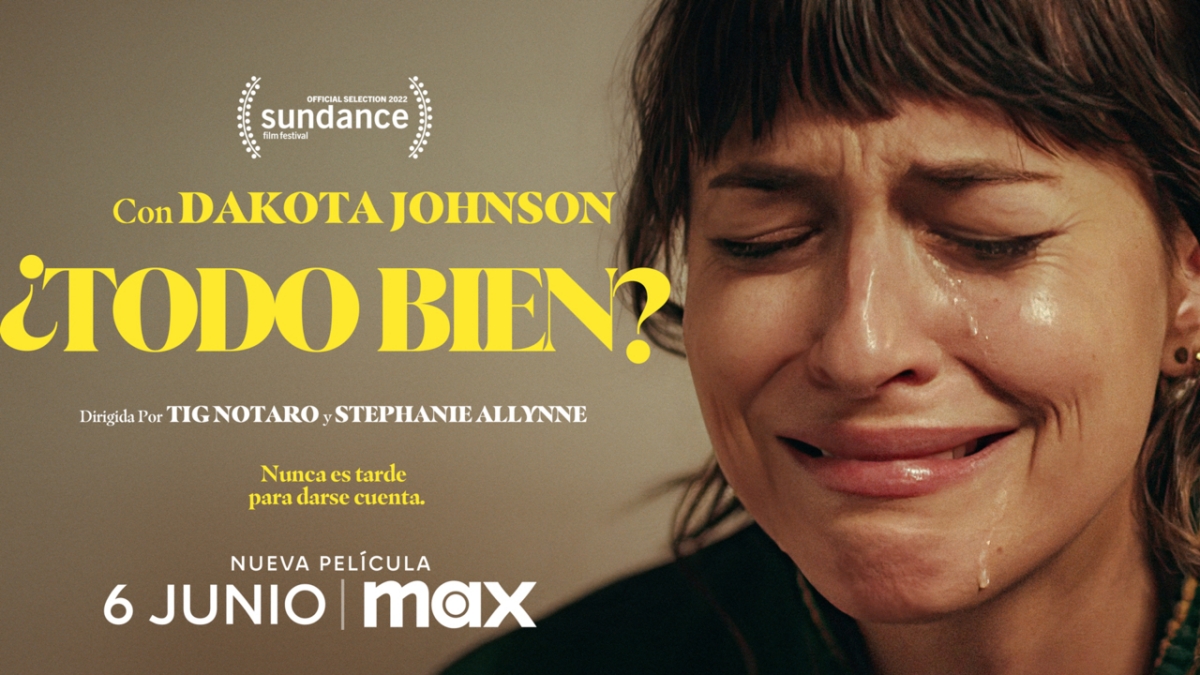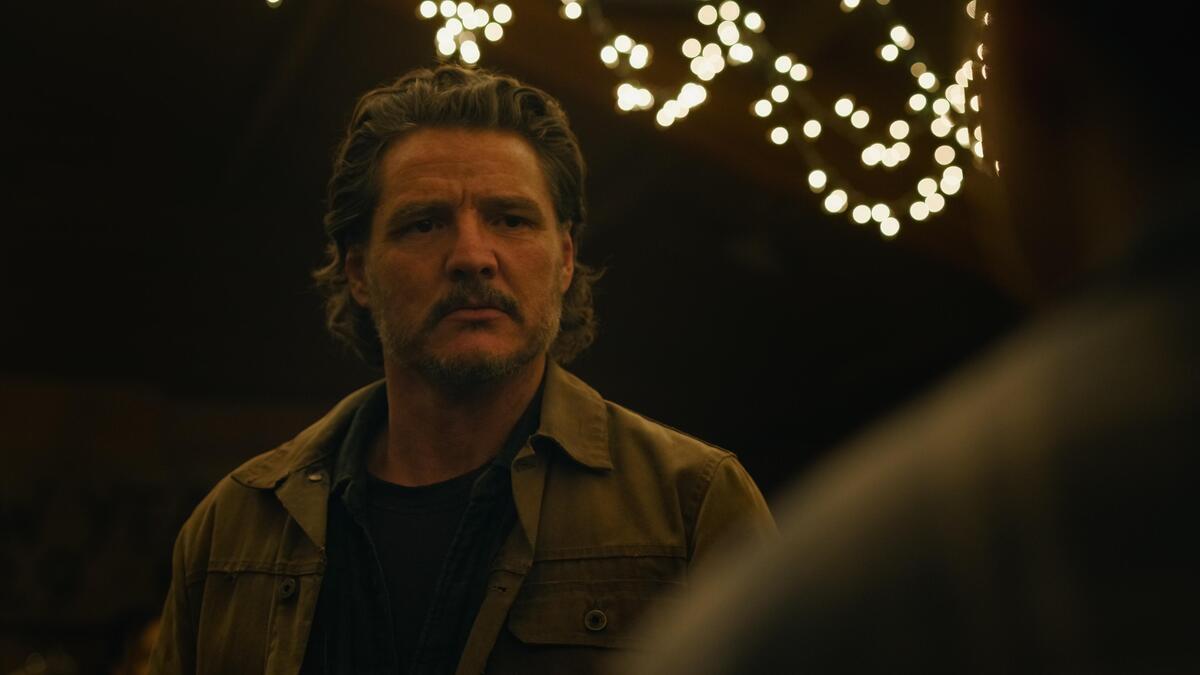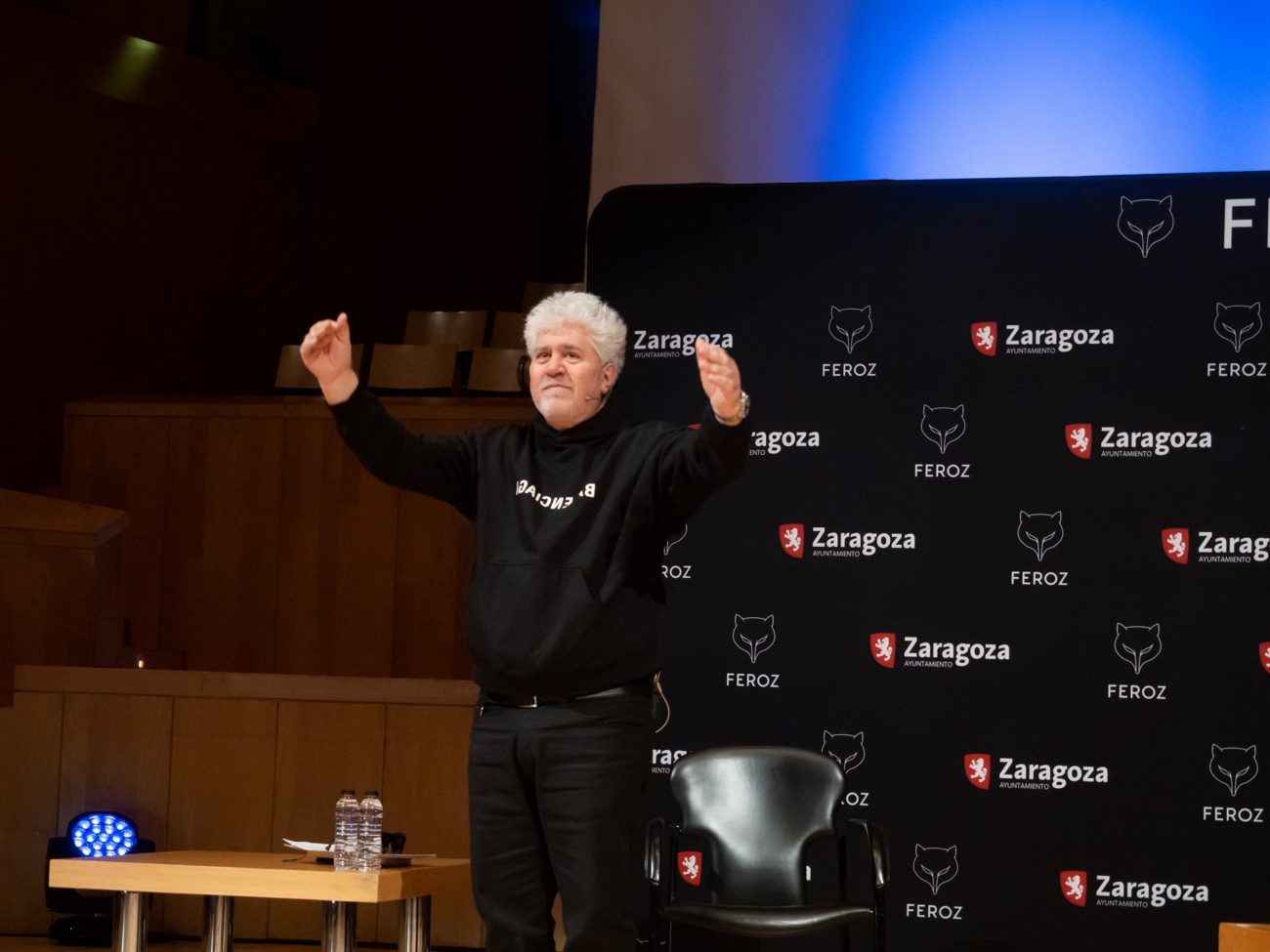
Spain, a country that has changed
The filmmaker Pedro Almodóvar has maintained that Spain «is very plural» and «is much more than what I tell in my films», although he has recognized that it is a responsibility that his films have served to make people outside the country realize that the country had changed. SOURCE: (EUROPA PRESS)
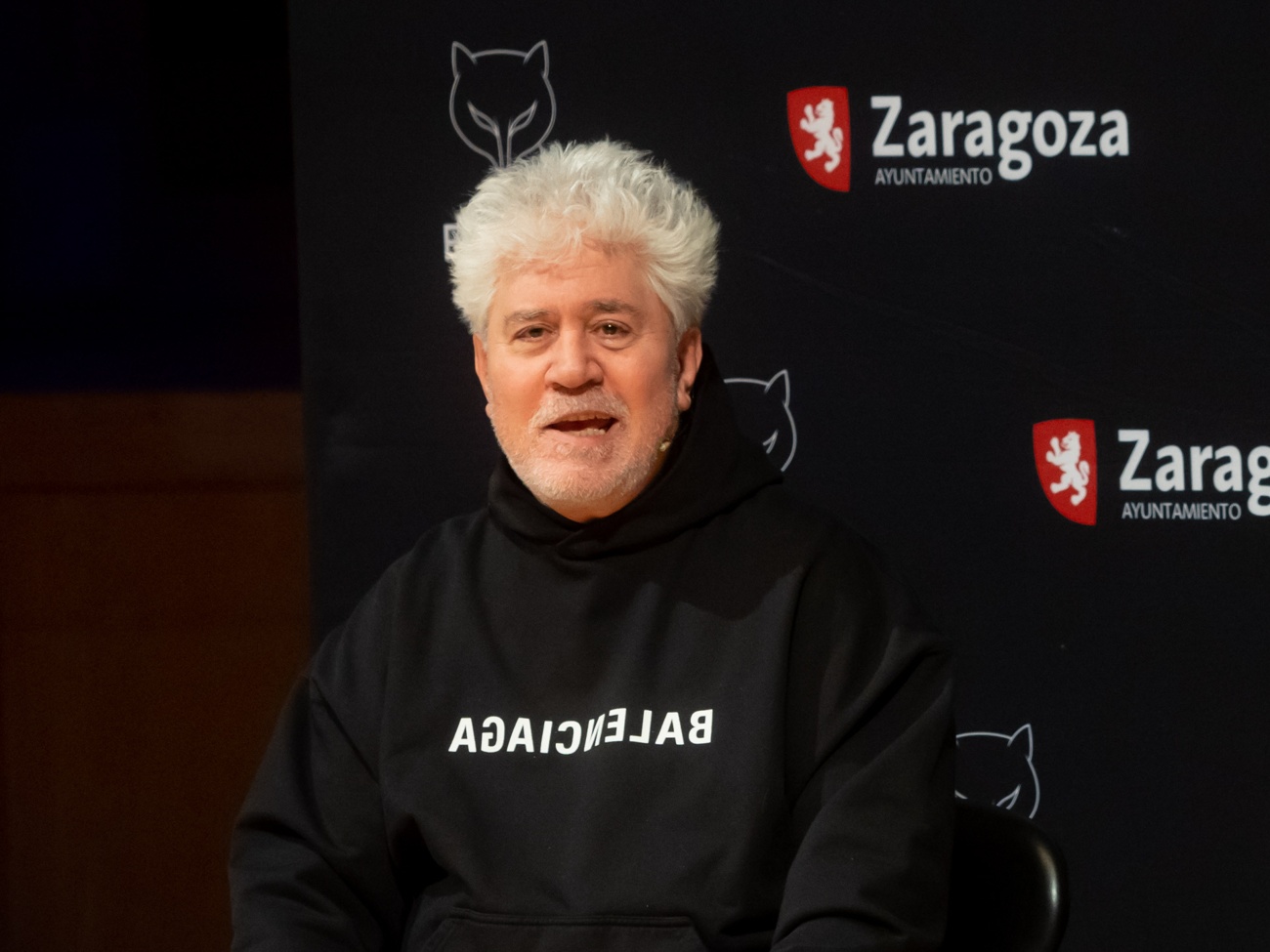
Audi Feroz Honorary Award 2023
He made this statement during a meeting with the public, held in the Sala Mozart of the Auditorio de Zaragoza, Spain, attended by 1,900 people, as part of the celebration of the Feroz Awards 2023, which will be presented this Saturday and where Almodóvar will be awarded the Audi Feroz Honorary Award 2023.
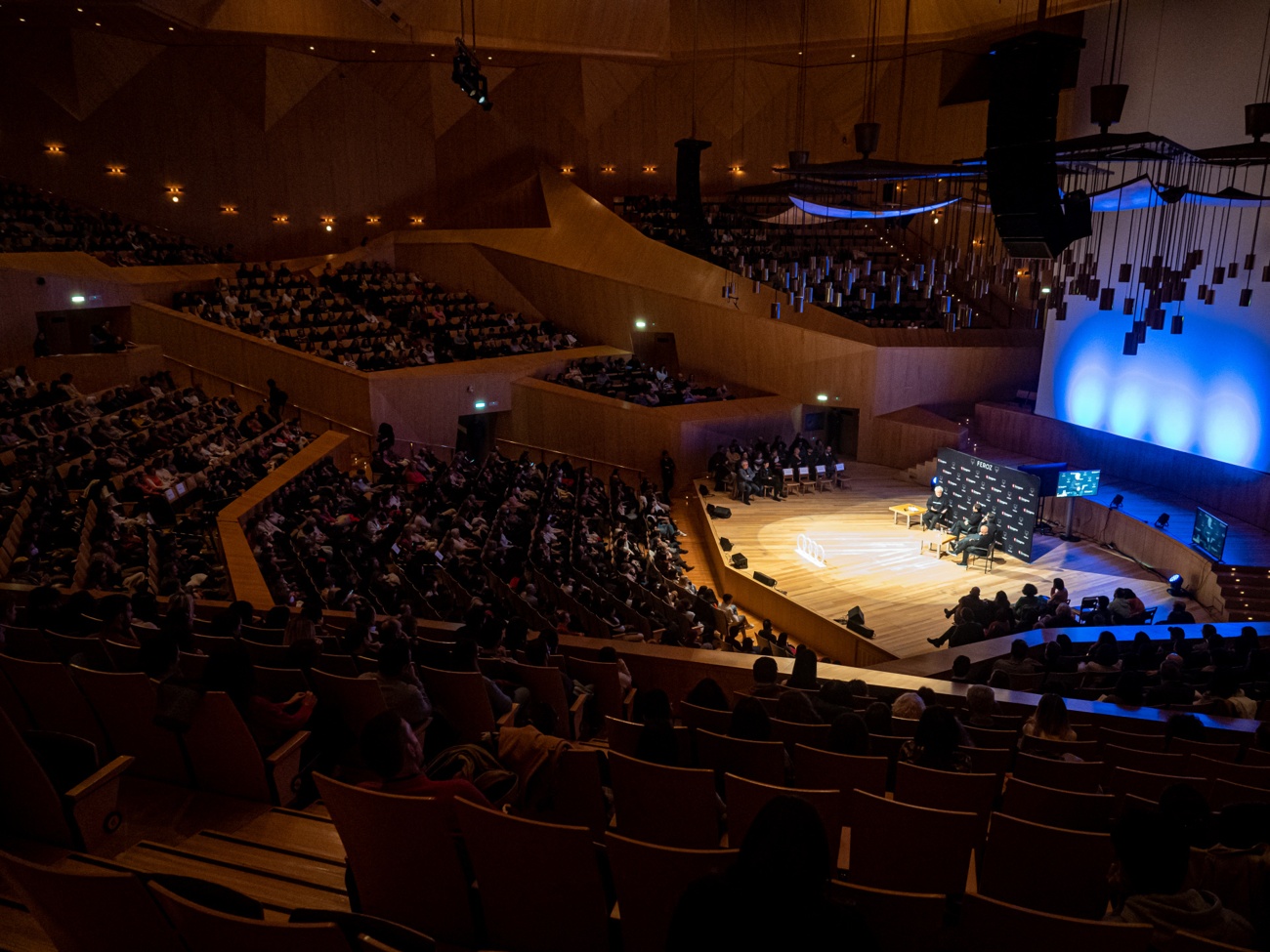
Vision of a citizen of Spain
He said that, as a Spaniard who makes films in Spain, his vision is that of a citizen of this country, with his point of view. He also considered that his cinema began at a time when in the international panorama «there was interest in what was happening here», because before «nobody had wanted to know anything», with a few exceptions, «and we are not going to be able to match the decade of the 60s in quality of masterpieces».
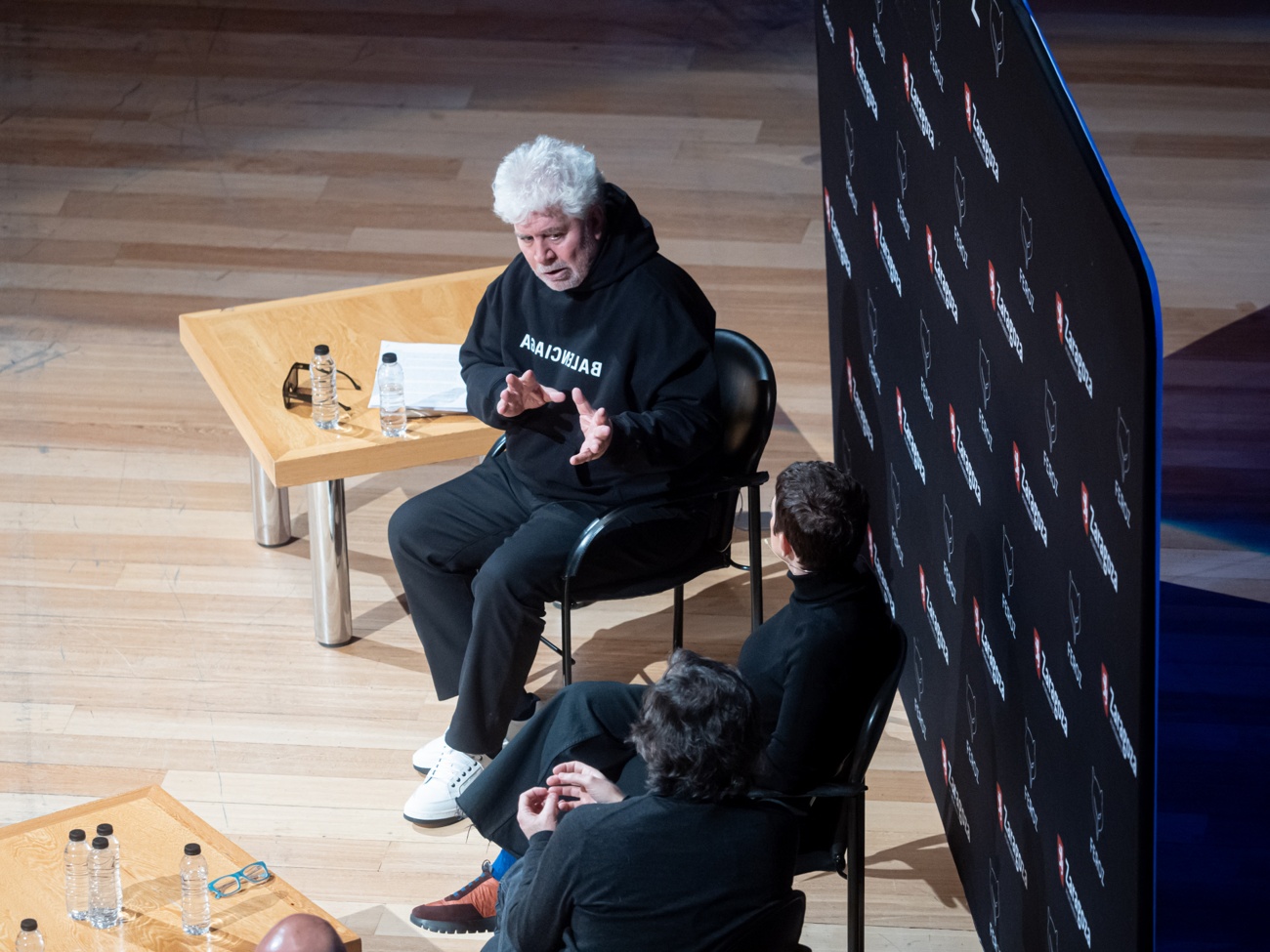
In 1978, all he thought about was having fun
In his case, he pointed out that he started from the moment of the Transition and that is its result. «Without that I would not have been able to make the films I have made», although he has recognized that in 1978 he only thought about having fun, he had no political concern, nor was the Movida a political movement. «That something was moving was evident» and «we went out into the street and discovered that we had lost our fear and it was about living that freedom».
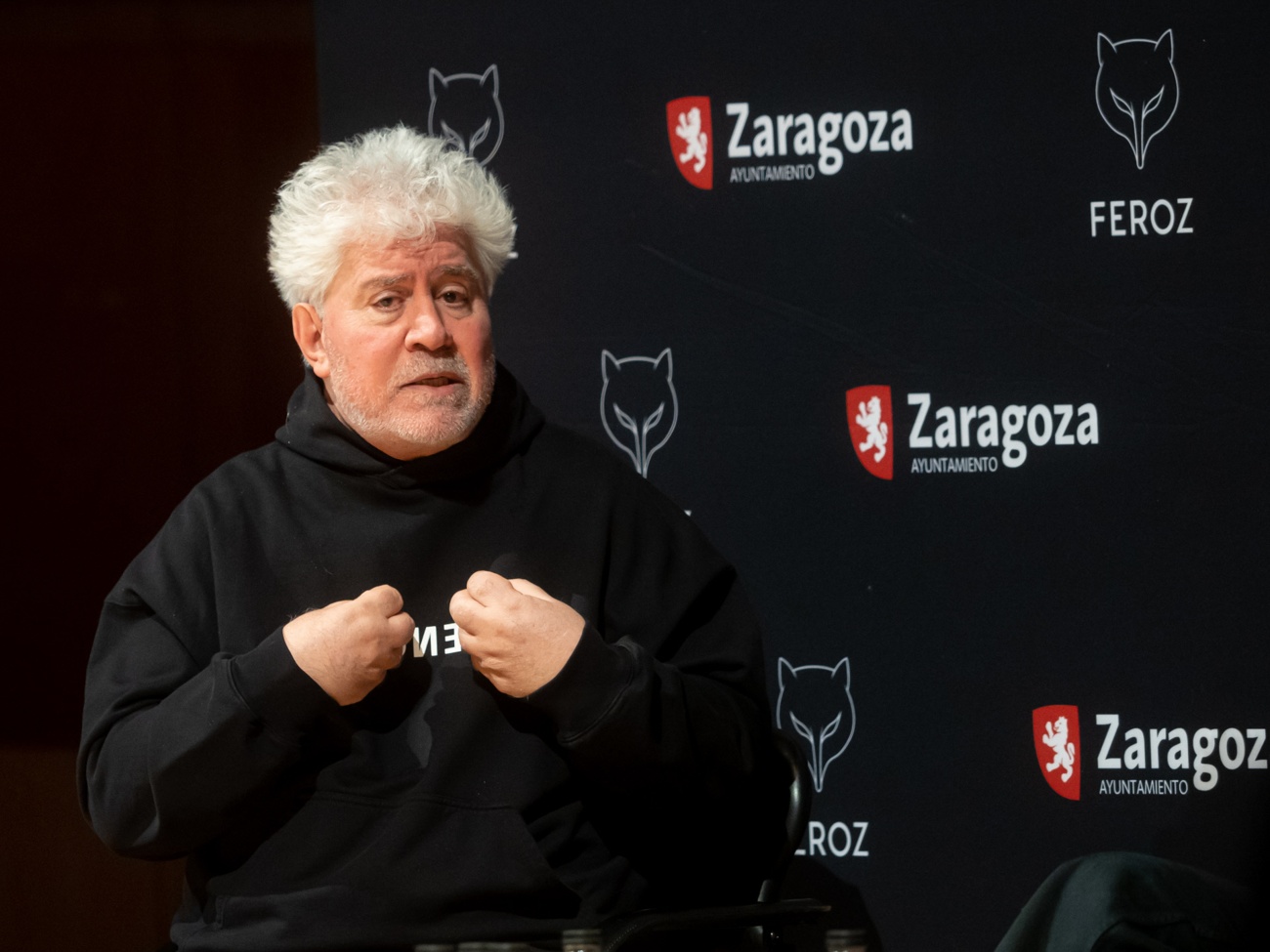
His cinema has evolved
He said that during the Transition enough was done to make the transition to democracy. However, his cinema has evolved as he has done and also Spain «has been changing» and it has been later when he has been recovering the memory and has exposed pending issues from that time, such as the mass graves that he addressed in his film ‘Parallel Mothers’. «It was one of the prices that the left had to pay to be able to move forward» and he has reproached that the PSOE, in the 80s, when it obtained absolute majorities, did not address it, as a «purely human» issue.
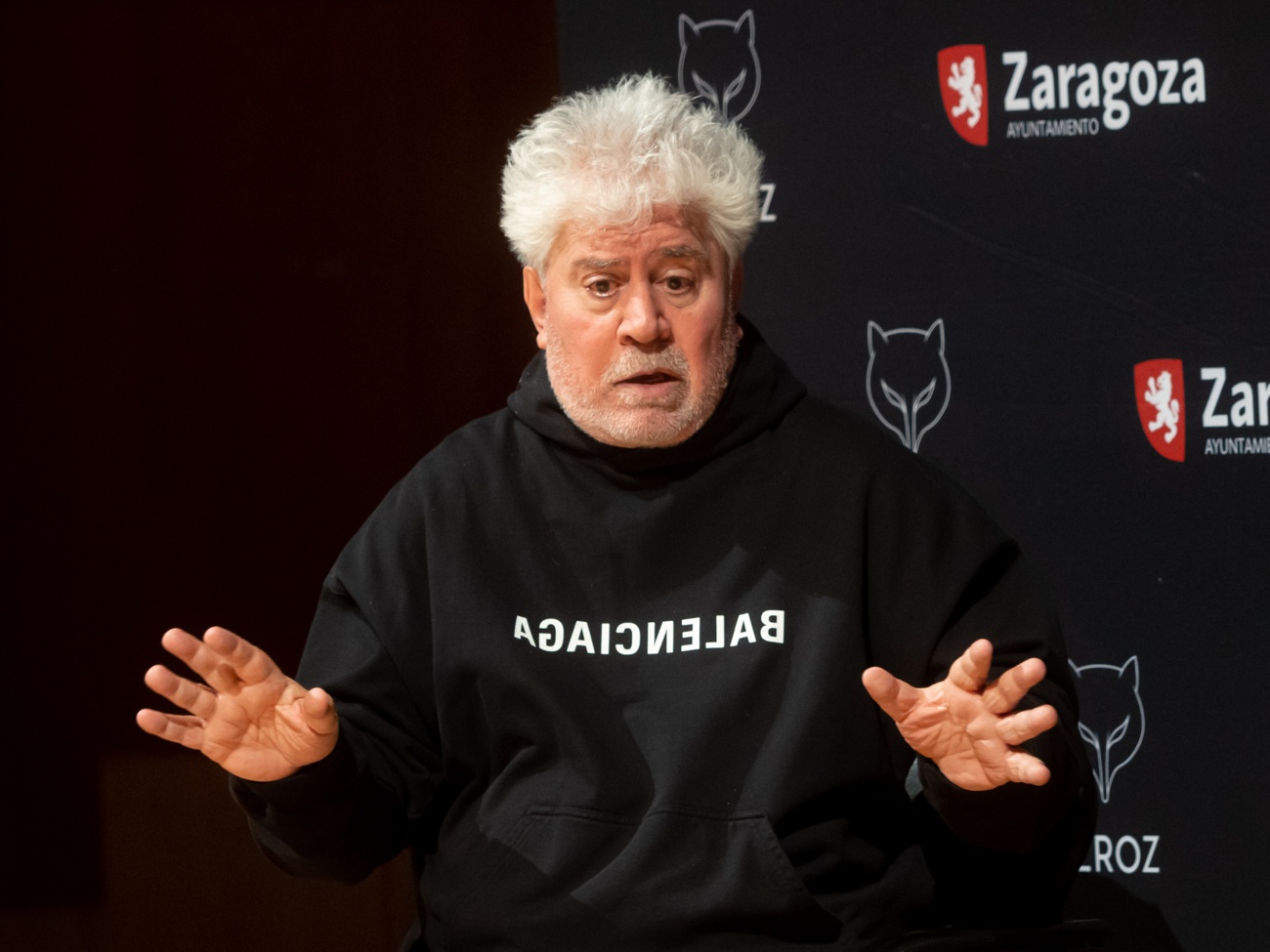
The worst censorship
In his case, at the beginning of his career he wanted to talk only «about the moment in which Spain took the step to democracy because what was happening in the streets and at night was the most interesting thing to talk about» and he wanted to ignore Francoism «even the shadow of its existence». He regretted that at this time «political correctness has become the worst of censorship, you have to be watching to see who you offend» and Spanish society «has greatly diminished in freedoms and our democracy needs a review and refresh it urgently, and our Constitution as well».

Silence about the Civil War at home
Almodóvar has reminisced about his childhood and adolescence, in which, despite the fact that his father fought in the Civil War, he never spoke about it. «There was a pathological silence that spread to all the members of the family». He also spoke of his years in the town of Poleñino, in the province of Huesca.
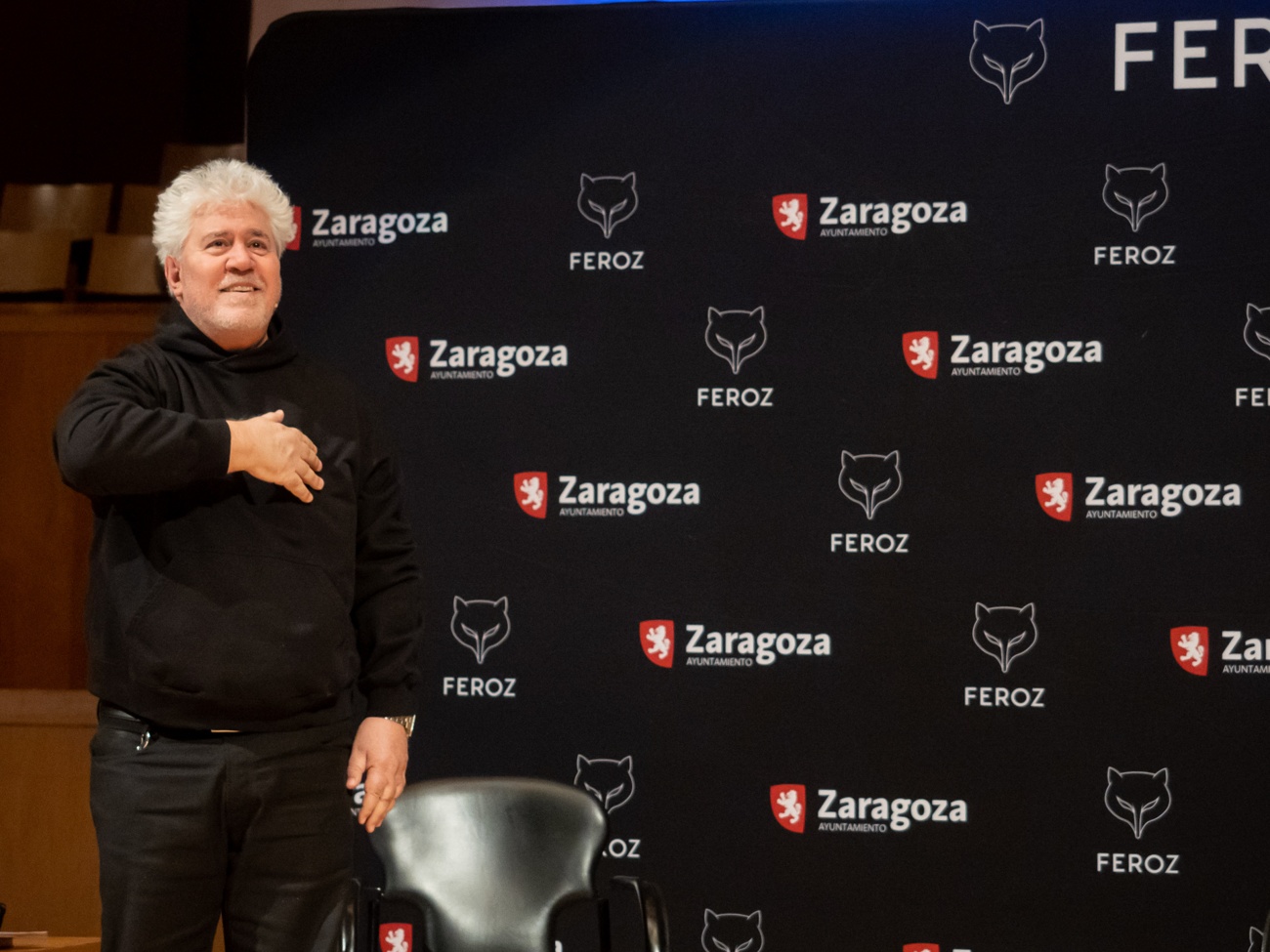
The first time he left home
«In the 1950s we were moving in search of prosperity» and his family’s first departure from Calzada de Calatrava was to Poleñino, in 1957, where his father found a job: «He did a roll call every morning for the workers» who were developing the irrigation plan for Los Monegros.
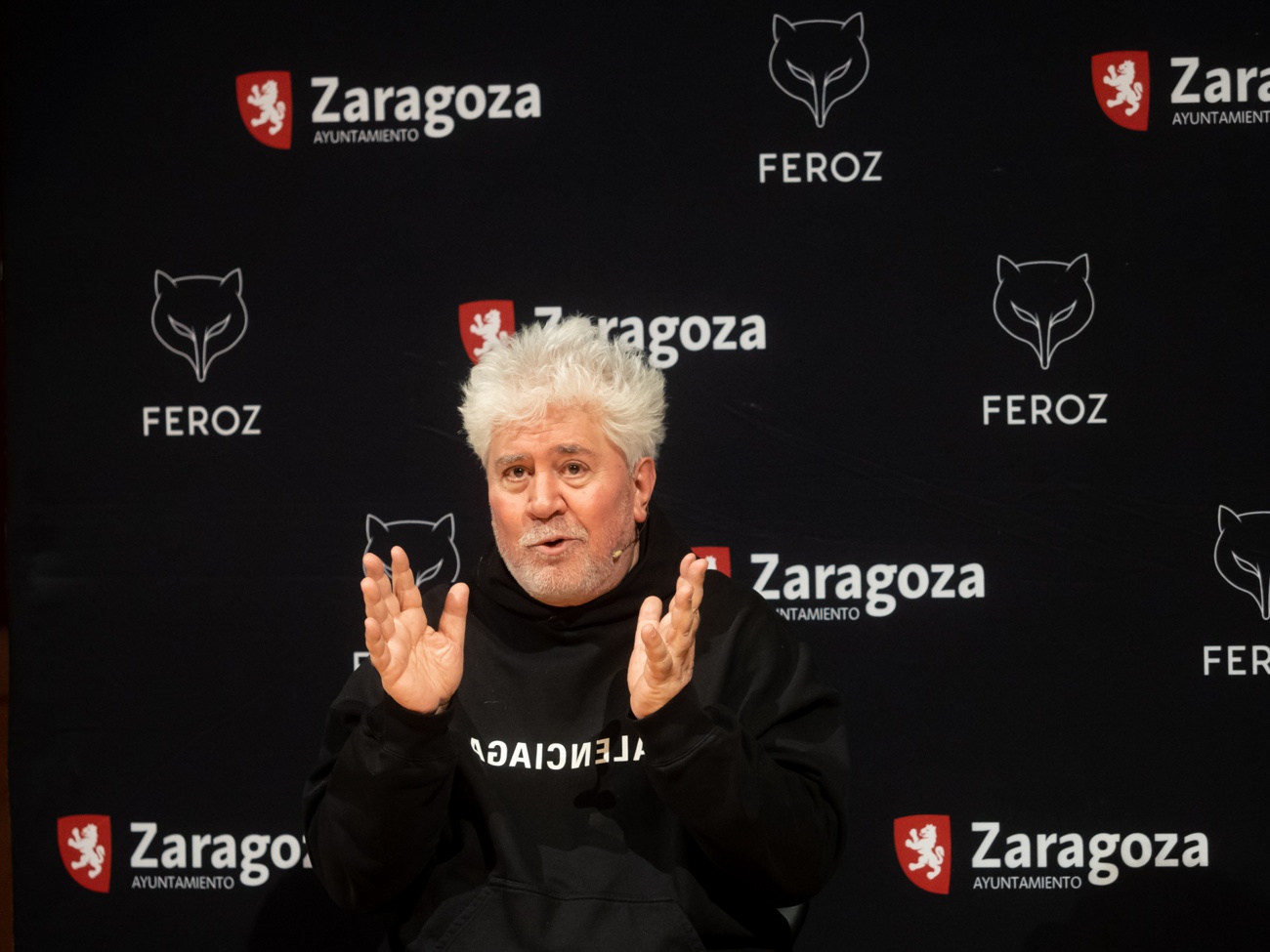
Hospitality and kindness
«There is something that my whole family remembers, we were met with hospitality and kindness that is hard to believe» and the day after we arrived, «we came in a very precarious situation» and, «when my mother opened the door, she found a bundle full of fruits and vegetables.»
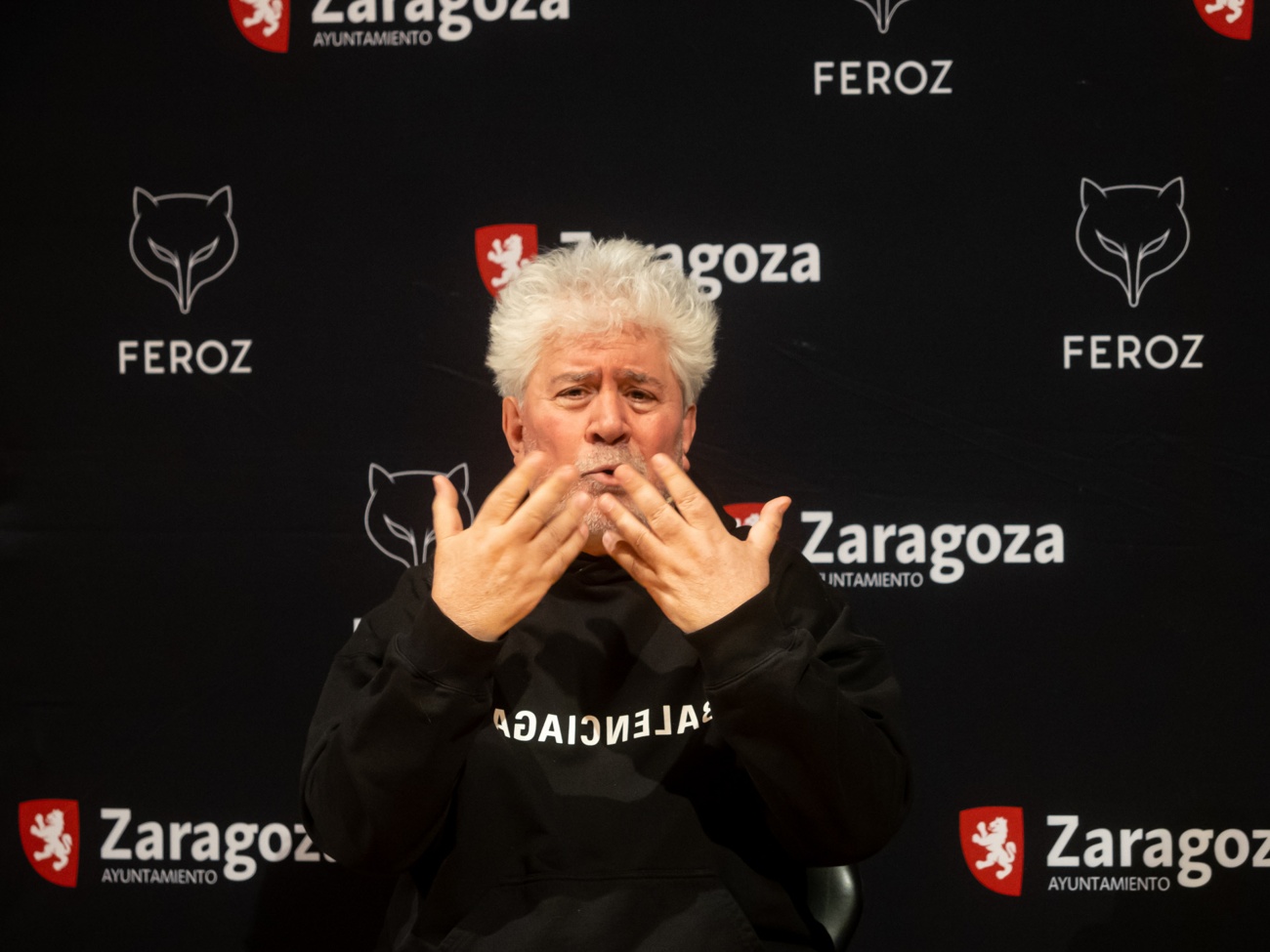
A lot of Italian and Mexican cinema
The filmmaker said that it was in Poleñino where he started going to the movies, where he saw a lot of Italian and Mexican cinema, Spanish folkloric films, some genre films and some vampire films, he recalled: «I discovered that that reality was more real than what surrounded me, it was the universe where I wanted to live». However, he believed that movies were made by the actors and it was not until his adolescence, in Cuenca, when he discovered that there was an actor and someone behind the camera and «that was the place I wanted to occupy».
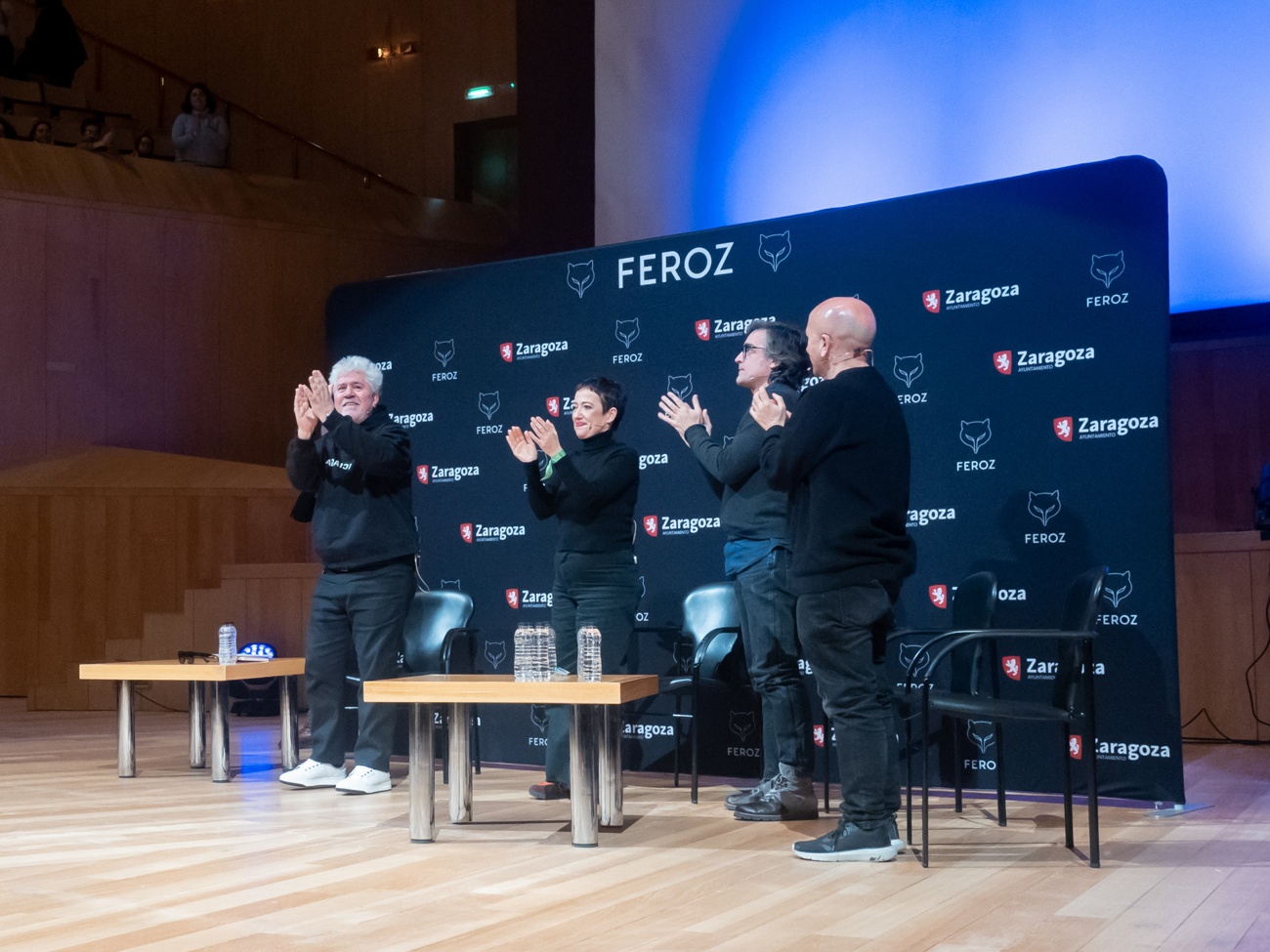
The cinema caught him
He has expressed the difficulties he had and how he had to combine his work as an administrative assistant at Telefónica between 1970 and 1982, where he requested up to six permits to shoot, one of them for ‘Pepi, Luci, Bom y otras chicas del montón’ (Pepi, Luci, Bom and Other Girls Like Mom). Cinema caught him.
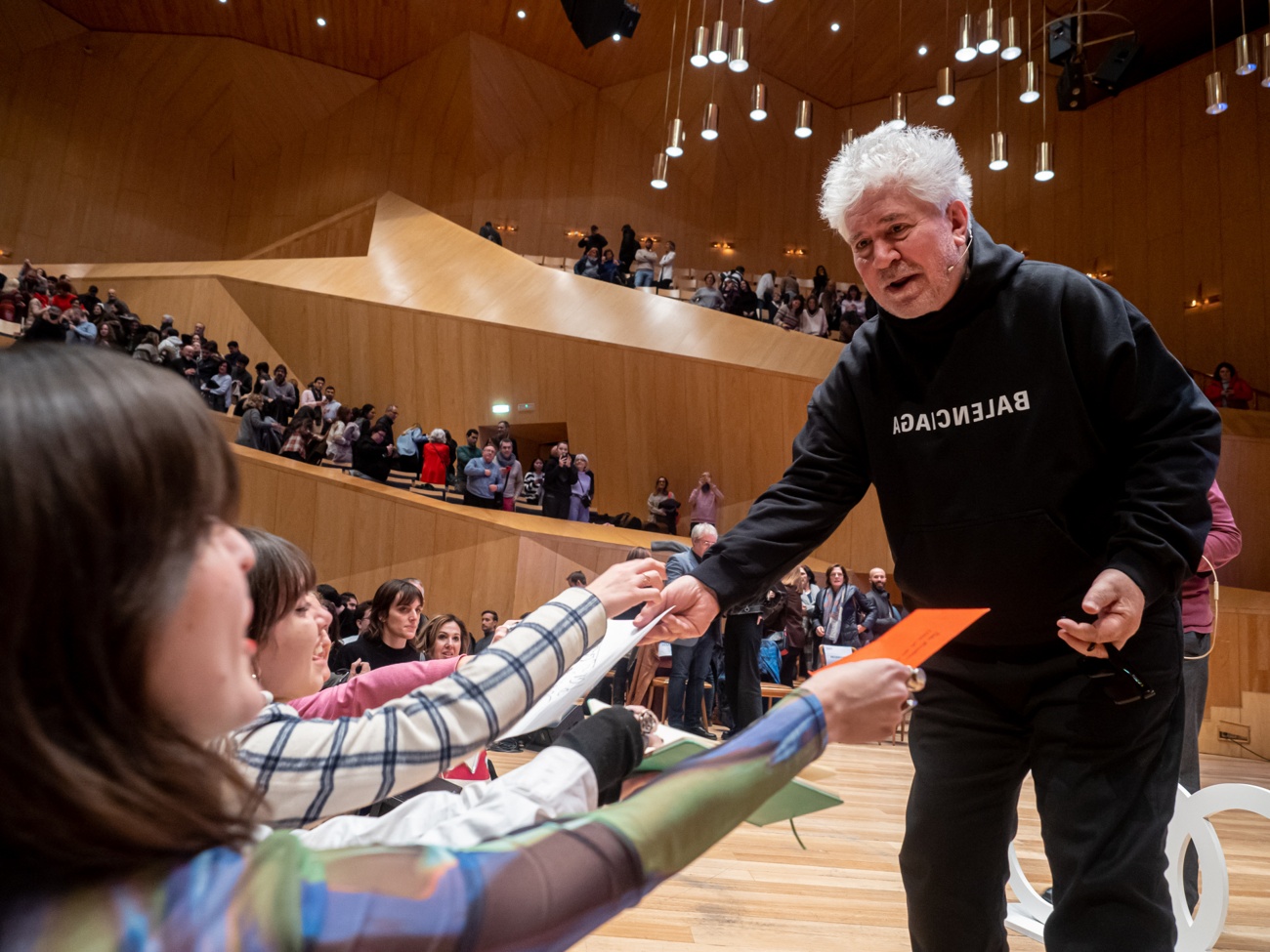
Admiration towards Luis Buñuel
In the session, he talked about different issues, such as the fact that his mother appears in some of his films, his way of dealing naturally with issues such as homosexuality or being a transvestite, his admiration and connection with the Aragonese filmmaker Luis Buñuel.
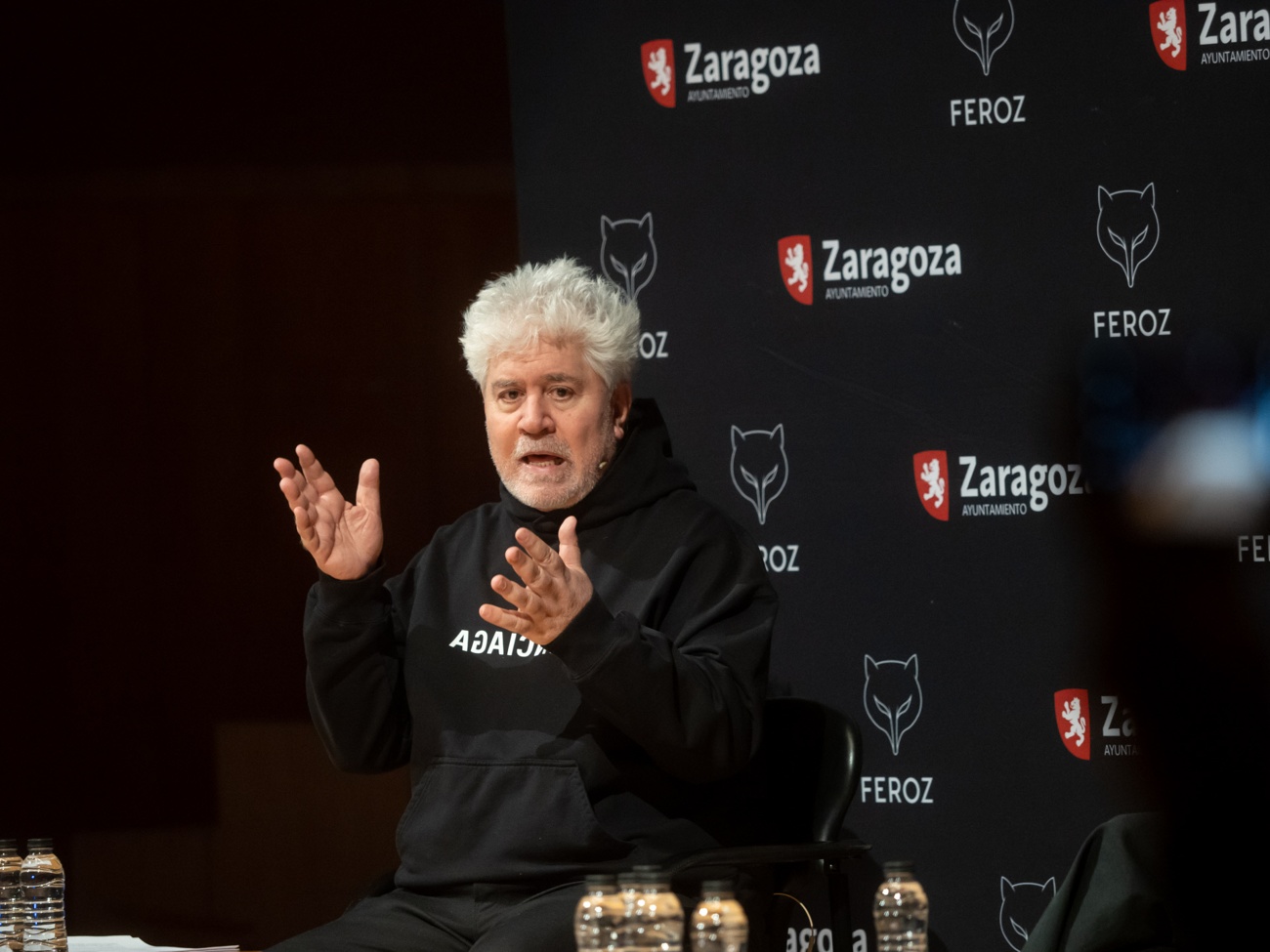
Young people are a mystery
He has acknowledged that he would like to write about younger characters, «but I don’t know them», «they are a mystery» and that’s why he doesn’t do it.
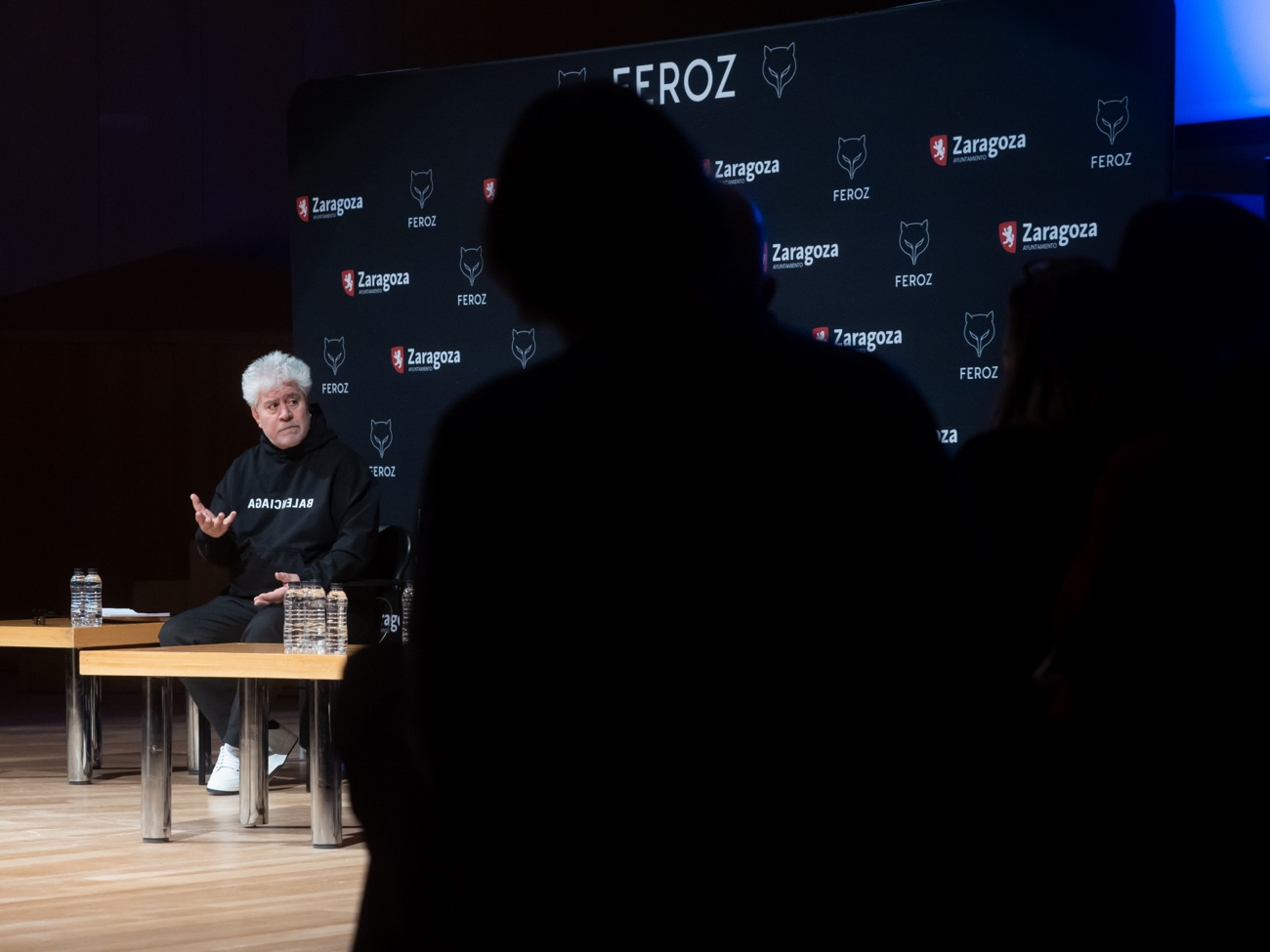
The director’s natural authority
He also acknowledged that being a film director «is one of the most powerful jobs» and «when there are bossy directors, they can give the rest a hard time», but he said he is not, and has only had to call three actors to attention after having shot 22 films and two shorts. «The director must provoke a sense of natural authority» and «must have delicacy» because each actor has his own thing and «you can hurt a person a lot, who at that moment is in your hands».
